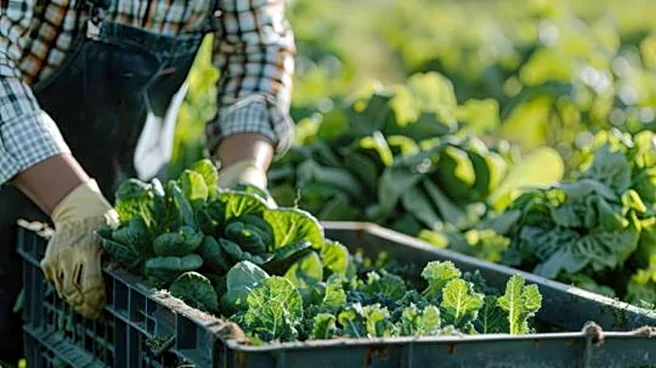What is the story about?
As India enters the peak of the festive season, the country’s gifting economy is emerging as a major driver of consumption, reshaping how consumers celebrate, shop, and express care. From wellness kits to conscious luxury jewellery, gifting is increasingly thoughtful, personalised and experiential, fueling retail, lifestyle and luxury segments alike.
Shift toward mindful, experiential gifting
Swagatika Das, Co-founder and CEO of wellness brand Nat Habit, highlights a transformation in consumer behavior this festive season: “Earlier, nearly 70–80% of festive gifts were convenience-based, but today, around 60% of consumers are choosing thoughtful, wellness-oriented options that feel meaningful. Gifting kits and ritual boxes that combine sustainability with a premium appeal are in high demand. More people now view self-care not just as a personal ritual but as a way to express care and connection.”
Wellness products, curated kits, and ritualistic gifting are increasingly favored over generic options, reflecting a broader trend where gifting has evolved into a way of creating experiences and building relationships.
Lifestyle brands see strong festive uptick
Several lifestyle and luxury brands are reporting significant growth this season. Ganesh Sonawane, Co-founder and CEO of Frido, said, “We have seen traffic rise by 28% and conversions by 18% over the pre-festive period. If this momentum continues, we anticipate closing the quarter with ~40% growth over last year's festive sales—supported by festive demand and our continuing organic momentum.”
Luxury jewellery is also witnessing a conscious transformation. Ricky Vasandani, Co-founder and CEO of Solitario, said, “This festive season reflects a clear shift in consumer choices, with buyers gravitating toward jewellery that balances beauty with responsibility. Lab-grown diamonds provide the same brilliance as mined stones while aligning with values of sustainability, accessibility, and modern aspirations. Millennials, in particular, are embracing jewellery as a form of self-expression that reflects both individuality and ethics. Jewellery is no longer just for weddings or milestones—it is becoming a personal statement of values and taste.”
Karva Chauth boosts sales and consumer sentiment
The gifting economy’s impact is evident in the numbers. CAIT Secretary General and Chandni Chowk MP, Praveen Khandelwal, estimates total Karva Chauth business at around ₹28,000 crore nationwide, with ₹8,000 crore contributed by Delhi alone. This is up from ₹22,000 crore in 2024 and ₹15,000 crore in 2023.
Traditional items such as sarees, lehengas, pooja thalis, sweets, jewellery, and cosmetics have seen strong demand. Salons, mehndi artists, and beauty parlours also reported long queues, providing significant employment opportunities to local artisans and service providers. Major markets, including Chandni Chowk, Sarojini Nagar, Karol Bagh, Connaught Place, and Rajouri Garden, witnessed packed shopping streets throughout the day.
The recent GST rate cuts and Prime Minister Narendra Modi’s call to “sell and buy Swadeshi” have further boosted consumer sentiment, increasing both purchasing power and willingness to spend on meaningful gifts.
Premium, personalised, and conscious gifting on the rise
Shoppers are becoming increasingly discerning, seeking quality, authenticity, and personalisation. Piyush Gupta, Director at PP Jewellers by Pawan Gupta, noted, “As we head into Dhanteras, we expect sales volume to be about 20% lower than last year, but value to grow by roughly 15–20%, driven by higher gold prices and customers opting for better designs with certified purity. Customers are asking more about purity, making charges, and buyback, which indicates a positive shift toward informed, value-conscious purchasing.”
Similarly, Tabby Bhatia, Founder of Brune & Bareskin, observed, “Despite changing market dynamics and higher price sensitivity, the festive season remains a period of indulgence. Consumers are seeking products that reflect both luxury and individuality while still aligning with their budgets. We are seeing strong interest in premium footwear, travel accessories, and handcrafted pieces that carry a sense of exclusivity and pride. Handcrafted and customisable gifting services have become particularly popular, catering to buyers who want personal and unique products.”
The gifting economy: A growing sector
Analysts say the gifting economy is no longer a niche market—it is becoming a cornerstone of India’s festive consumption. Categories driving growth include:
“With gifting becoming more personal, mindful, and experience-driven, brands that offer customisation, sustainability, and storytelling are emerging as clear winners,” said Das.
India’s gifting economy is evolving into a major sector, boosting retail, lifestyle, and luxury markets. With consumers prioritising thoughtful, sustainable, and premium gifting, the festive season is no longer just about shopping—it is about creating experiences, expressing care, and reflecting personal values. This evolution points to a robust growth trajectory for the gifting economy in the years to come.
Also Read: Mankind Pharma signs ₹797-crore deal to acquire women's health portfolio from subsidiary BSV
Shift toward mindful, experiential gifting
Swagatika Das, Co-founder and CEO of wellness brand Nat Habit, highlights a transformation in consumer behavior this festive season: “Earlier, nearly 70–80% of festive gifts were convenience-based, but today, around 60% of consumers are choosing thoughtful, wellness-oriented options that feel meaningful. Gifting kits and ritual boxes that combine sustainability with a premium appeal are in high demand. More people now view self-care not just as a personal ritual but as a way to express care and connection.”
Wellness products, curated kits, and ritualistic gifting are increasingly favored over generic options, reflecting a broader trend where gifting has evolved into a way of creating experiences and building relationships.
Lifestyle brands see strong festive uptick
Several lifestyle and luxury brands are reporting significant growth this season. Ganesh Sonawane, Co-founder and CEO of Frido, said, “We have seen traffic rise by 28% and conversions by 18% over the pre-festive period. If this momentum continues, we anticipate closing the quarter with ~40% growth over last year's festive sales—supported by festive demand and our continuing organic momentum.”
Luxury jewellery is also witnessing a conscious transformation. Ricky Vasandani, Co-founder and CEO of Solitario, said, “This festive season reflects a clear shift in consumer choices, with buyers gravitating toward jewellery that balances beauty with responsibility. Lab-grown diamonds provide the same brilliance as mined stones while aligning with values of sustainability, accessibility, and modern aspirations. Millennials, in particular, are embracing jewellery as a form of self-expression that reflects both individuality and ethics. Jewellery is no longer just for weddings or milestones—it is becoming a personal statement of values and taste.”
Karva Chauth boosts sales and consumer sentiment
The gifting economy’s impact is evident in the numbers. CAIT Secretary General and Chandni Chowk MP, Praveen Khandelwal, estimates total Karva Chauth business at around ₹28,000 crore nationwide, with ₹8,000 crore contributed by Delhi alone. This is up from ₹22,000 crore in 2024 and ₹15,000 crore in 2023.
Traditional items such as sarees, lehengas, pooja thalis, sweets, jewellery, and cosmetics have seen strong demand. Salons, mehndi artists, and beauty parlours also reported long queues, providing significant employment opportunities to local artisans and service providers. Major markets, including Chandni Chowk, Sarojini Nagar, Karol Bagh, Connaught Place, and Rajouri Garden, witnessed packed shopping streets throughout the day.
The recent GST rate cuts and Prime Minister Narendra Modi’s call to “sell and buy Swadeshi” have further boosted consumer sentiment, increasing both purchasing power and willingness to spend on meaningful gifts.
Premium, personalised, and conscious gifting on the rise
Shoppers are becoming increasingly discerning, seeking quality, authenticity, and personalisation. Piyush Gupta, Director at PP Jewellers by Pawan Gupta, noted, “As we head into Dhanteras, we expect sales volume to be about 20% lower than last year, but value to grow by roughly 15–20%, driven by higher gold prices and customers opting for better designs with certified purity. Customers are asking more about purity, making charges, and buyback, which indicates a positive shift toward informed, value-conscious purchasing.”
Similarly, Tabby Bhatia, Founder of Brune & Bareskin, observed, “Despite changing market dynamics and higher price sensitivity, the festive season remains a period of indulgence. Consumers are seeking products that reflect both luxury and individuality while still aligning with their budgets. We are seeing strong interest in premium footwear, travel accessories, and handcrafted pieces that carry a sense of exclusivity and pride. Handcrafted and customisable gifting services have become particularly popular, catering to buyers who want personal and unique products.”
The gifting economy: A growing sector
Analysts say the gifting economy is no longer a niche market—it is becoming a cornerstone of India’s festive consumption. Categories driving growth include:
- Wellness and self-care kits
- Handcrafted and personalised gifts
- Conscious luxury jewellery
- Experiential gifting, including ritual-based and curated gift boxes
“With gifting becoming more personal, mindful, and experience-driven, brands that offer customisation, sustainability, and storytelling are emerging as clear winners,” said Das.
India’s gifting economy is evolving into a major sector, boosting retail, lifestyle, and luxury markets. With consumers prioritising thoughtful, sustainable, and premium gifting, the festive season is no longer just about shopping—it is about creating experiences, expressing care, and reflecting personal values. This evolution points to a robust growth trajectory for the gifting economy in the years to come.
Also Read: Mankind Pharma signs ₹797-crore deal to acquire women's health portfolio from subsidiary BSV
/images/ppid_59c68470-image-176010502684631848.webp)

/images/ppid_59c68470-image-177062016796846248.webp)
/images/ppid_59c68470-image-177062014136121945.webp)
/images/ppid_59c68470-image-177062004190524024.webp)
/images/ppid_a911dc6a-image-177062205990076876.webp)

/images/ppid_a911dc6a-image-177062202825395059.webp)





/images/ppid_a911dc6a-image-177062083254192483.webp)


/images/ppid_59c68470-image-177062020106260359.webp)